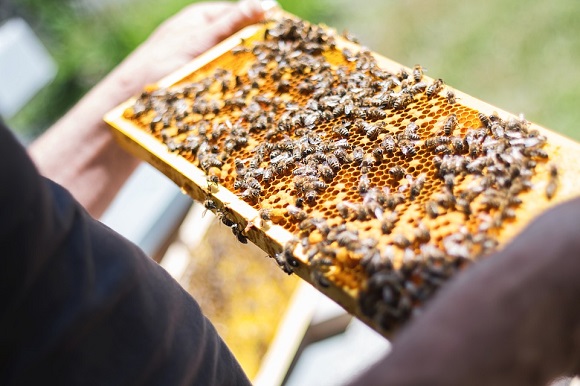-
About
- Our Work
- Get Involved
- Stay Updated

Bees are more vital to our ecosystem (and your local grocery) than you may even know.
While bees are not the only pollinators we have they're by far the best creatures for the job. In part, this is because they need pollen to feed their larvae, so they're biologically driven to gather the stuff. notes. Because of this, protecting the bees is of the highest calling. If you care about the health of our global ecology, you will do your part to help at home - and remember, anything (however small) helps.
Through a combination of human practices like widespread pesticide use, habitat destruction, and the harrowing effects of climate change, we are witnessing a decline in bee colonies around the globe. Its a scary prospect, and such a global one that you may feel as though its out of your control. The fact is, however, you can do your part to help protect these vital creatures.
Only buy local honey
The stuff that comes in the plastic bee containers at the supermarket may be cheap and convenient, but if you want to truly help the bee population you should try to only purchase local, organic honey.
The decline in bee colonies has hit beekeepers hard. Many local beekeepers are working diligently to keep bee populations healthy, while they struggle to survive financially. By buying locally sourced honey you support local beekeepers and your community.
Not only that but local beekeepers are much more likely to be keeping in a manner thats better for the bees (as opposed to a large commercial apiary).
Start your own little bee garden (no matter how small)
Even if you only have a small space within the premises of your house, you can still do your part to support the local bee population by creating a little bee garden. All healthy gardens are friendly to bees, but there are some things you can do to make your particular garden a little more inviting.
Bees do prefer certain plants - generally flowering vegetable and herb plants and local, native wildflowers. They also prefer single (as opposed to double) petal plants so that its easier to access the pollen. And if you want to attract the most bees, try to go heavy on the blues and yellows. There are few tips on gardening for beginners.
In this garden of yours, no matter how large or how small, its vital that you give the bees a place to stop for water. Not only do they need it to survive like all other living creatures, but it will help them with digestion and in the building and maintaining of hives. Bee baths, unlike bird baths, need to be shallow and contain rocks and stones for landing.
Finally, do whatever you can to avoid pesticides, which can have a damaging effect on local bee populations. If you want to fight pests, try planting a smart garden that utilizes naturally repellent plants.
Speak with your wallet
Though you can do a lot on a local scale to help bees, the problem is a global one. The way you can make your conservation efforts stretch beyond your home is to make your voice heard - with your wallet. Donating to bee conservation groups can help them with preservation, outreach, and research that go toward saving colonies all over the world.
Related Posts
Comments
No comments made yet. Be the first to submit a commentBy accepting you will be accessing a service provided by a third-party external to https://www.ypard.net/
Get in touch
Email: [email protected]
YPARD Global Coordination UnitHosted by AGRIDEA and the Czech University of Life Sciences Prague
Lausanne, Switzerland and Prague, Czech Republic - Our Work


